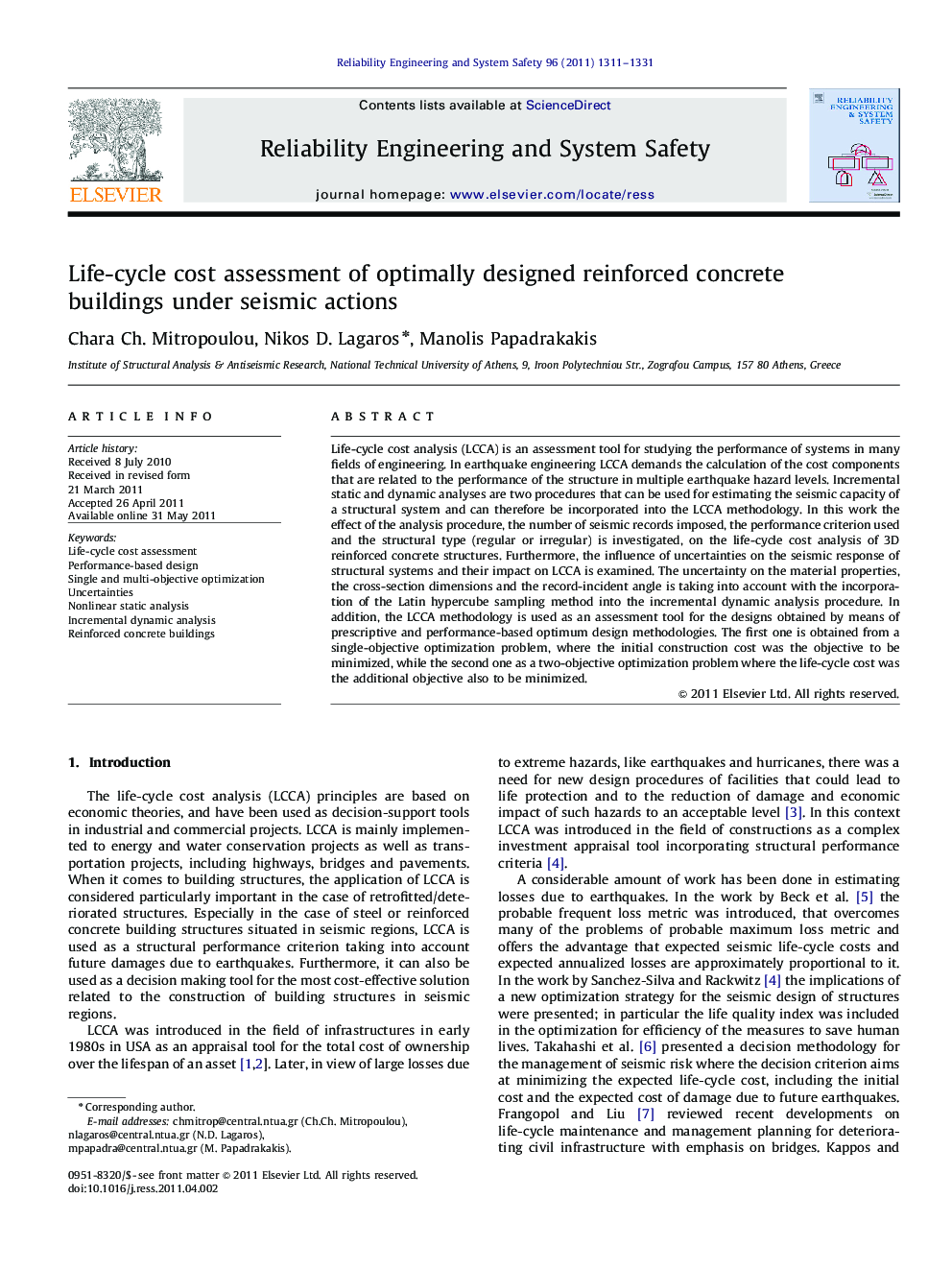| Article ID | Journal | Published Year | Pages | File Type |
|---|---|---|---|---|
| 806397 | Reliability Engineering & System Safety | 2011 | 21 Pages |
Life-cycle cost analysis (LCCA) is an assessment tool for studying the performance of systems in many fields of engineering. In earthquake engineering LCCA demands the calculation of the cost components that are related to the performance of the structure in multiple earthquake hazard levels. Incremental static and dynamic analyses are two procedures that can be used for estimating the seismic capacity of a structural system and can therefore be incorporated into the LCCA methodology. In this work the effect of the analysis procedure, the number of seismic records imposed, the performance criterion used and the structural type (regular or irregular) is investigated, on the life-cycle cost analysis of 3D reinforced concrete structures. Furthermore, the influence of uncertainties on the seismic response of structural systems and their impact on LCCA is examined. The uncertainty on the material properties, the cross-section dimensions and the record-incident angle is taking into account with the incorporation of the Latin hypercube sampling method into the incremental dynamic analysis procedure. In addition, the LCCA methodology is used as an assessment tool for the designs obtained by means of prescriptive and performance-based optimum design methodologies. The first one is obtained from a single-objective optimization problem, where the initial construction cost was the objective to be minimized, while the second one as a two-objective optimization problem where the life-cycle cost was the additional objective also to be minimized.
